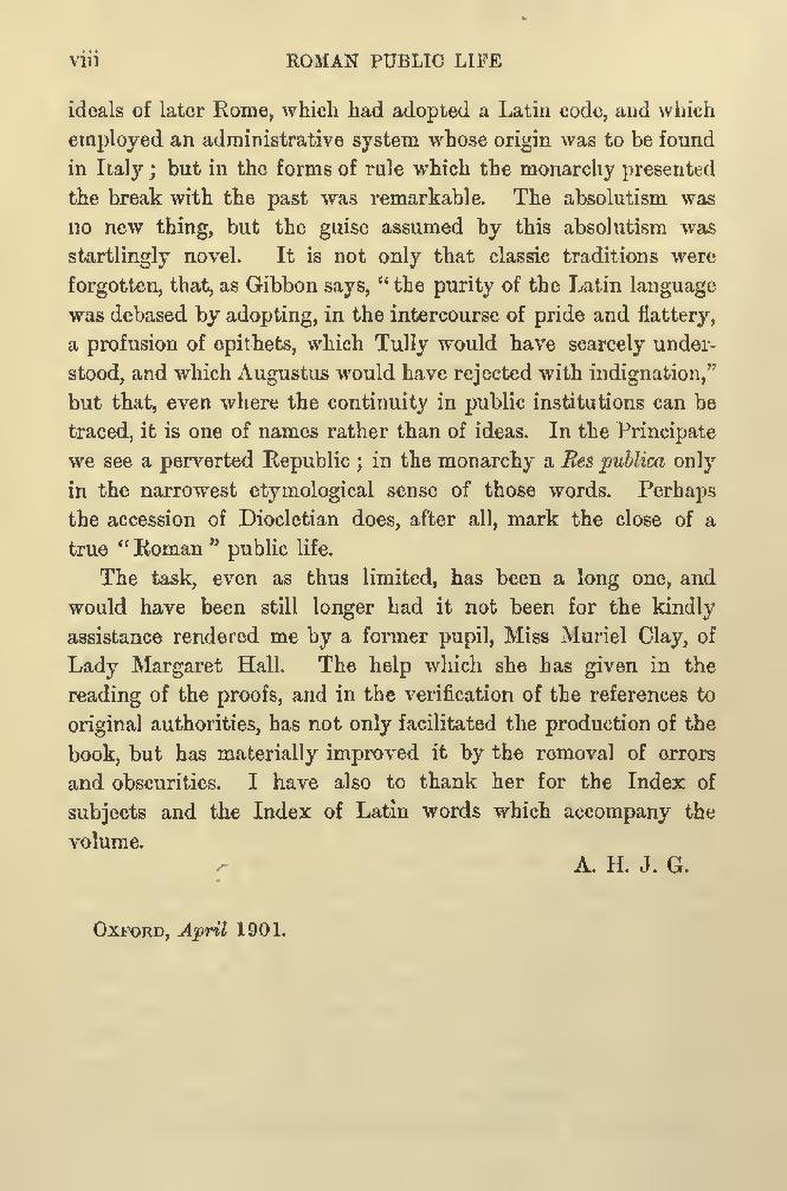ideals of later Rome, which had adopted a Latin code, and which employed an administrative system whose origin was to be found in Italy; but in the forms of rule which the monarchy presented the break with the past was remarkable. The absolutism was no new thing, but the guise assumed by this absolutism was startlingly novel. It is not only that classic traditions were forgotten, that, as Gibbon says, "the purity of the Latin language was debased by adopting, in the intercourse of pride and flattery, a profusion of epithets, which Tully would have scarcely understood, and which Augustus would have rejected with indignation," but that, even where the continuity in public institutions can be traced, it is one of names rather than of ideas. In the Principate we see a perverted Republic; in the monarchy a Res publica only in the narrowest etymological sense of those words. Perhaps the accession of Diocletian does, after all, mark the close of a true "Roman" public life.
The task, even as thus limited, has been a long one, and would have been still longer had it not been for the kindly assistance rendered me by a former pupil, Miss Muriel Clay, of Lady Margaret Hall. The help which she has given in the reading of the proofs, and in the verification of the references to original authorities, has not only facilitated the production of the book, but has materially improved it by the removal of errors and obscurities. I have also to thank her for the Index of subjects and the Index of Latin words which accompany the volume.
A. H. J. G.
Oxford, April 1901.
